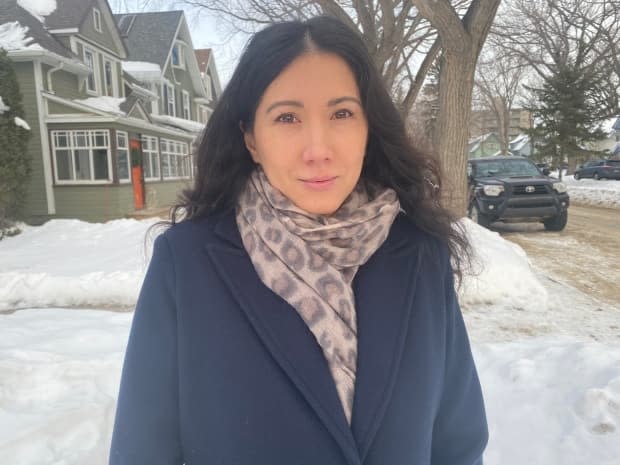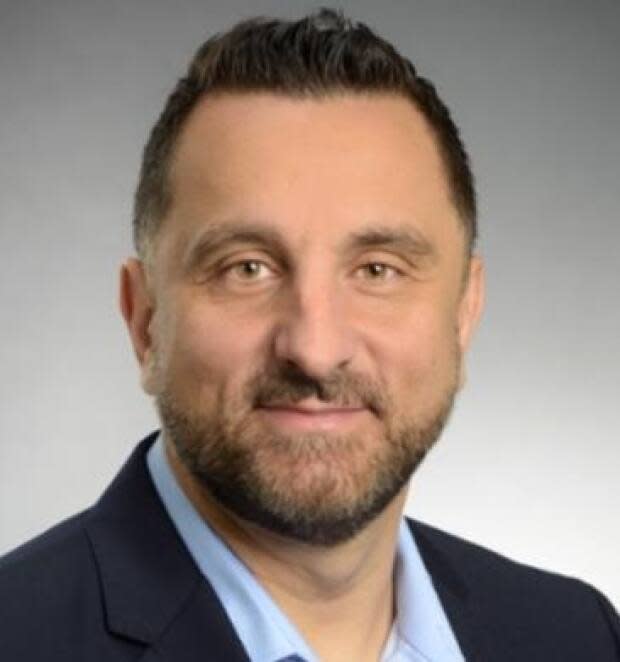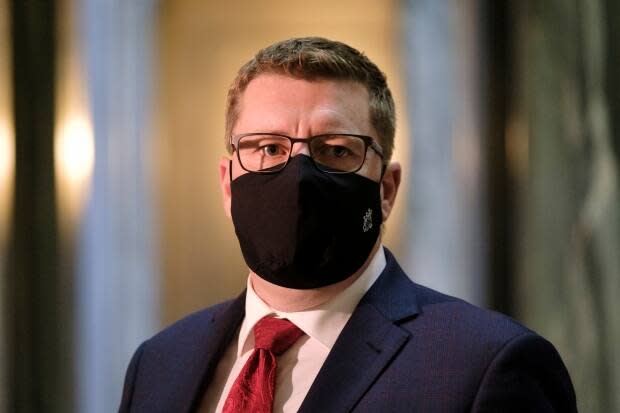Anti-mask sentiment 'very similar to brainwashing,' prof says in wake of Sask. COVID-19 protest
Many of the hundreds who attended a recent Saskatoon protest against COVID-19 measures are victims of a toxic mix of fear, anger and social media, experts in psychiatry and social media say.
"I would say it's very similar to brainwashing. It's very difficult to try to bring someone like that back to reality," said Alec Couros, a University of Regina professor of educational technology and media.
These deep-seated conspiracy theories against mask use, vaccination or secret government plots are difficult to undo, but Couros said Premier Scott Moe and other political leaders have to try harder.
That starts with frequent, strong support for public health measures to stop the spread of COVID-19. It also requires a clear condemnation of the lies and manipulation which lead people to attend rallies like this.
Left unchallenged, these beliefs "become more severe, more radical. With time, you don't even realize you've been radicalized," Couros said.

A crowd of several hundred, many of them young families, gathered at the Kiwanis Memorial Bandshell Saturday afternoon. They marched up the Broadway Bridge chanting "Freedom!" and waving placards reading "MASKS KILL" or "I will not surrender my freedom like a coward."
Saskatoon psychiatrist Dr. Tamara Hinz agrees with Couros. She said it's difficult to reason with someone motivated to chant conspiracy theories in the streets with their children. The constant barrage of social media makes it even more difficult.
Hinz drove by the protest, and said it made her sad. She said the evidence clearly shows vaccines, masks and other COVID-19 safety measures like physical distancing save lives.
Hinz said she's confident the protesters represent only a tiny minority of the Saskatchewan public, but noted it only takes a small number of people to do a lot of damage during the pandemic.
She said there's no disputing the enormous burden COVID-19 is placing on Saskatchewan's health-care system, a burden which will be felt by everyone who needs care.
"People who attend these rallies are ignorant to the realities in our health care system. It affects you if you break your arm, if you are depressed, if you're in a car accident. I think some people have blinders on," Hinz said.

Hinz said some people respond better to concrete details rather than abstract concepts. Instead of talking about "physical distancing," some people would understand better if told to stand two metres apart. She noted U.S. President-elect Joe Biden is suggesting a 100-day period for improving mask compliance.
People who are skeptical or fearful want to cling to specific time frames or instructions, she said.
Like Couros, she called on Premier Scott Moe, Health Minister Paul Merriman and other leader to speak out more strongly and to combat this misinformation.
"Leaders play a huge role. We need our politicians in no uncertain terms to say this is not something we approve of. We need to condemn this," Hinz said.
Speaking to reporters Monday afternoon, Moe called the rally "troublesome" and "a new level of problematic." He said those attending are wrong. He said those violating the public health orders may face consequences.

"The laws are in place and can be enforced," Moe said.
"Those public health orders are there for a reason. They're there to not only keep ourselves safe, but they're there to keep the level of transmission in our communities as low as possible."


